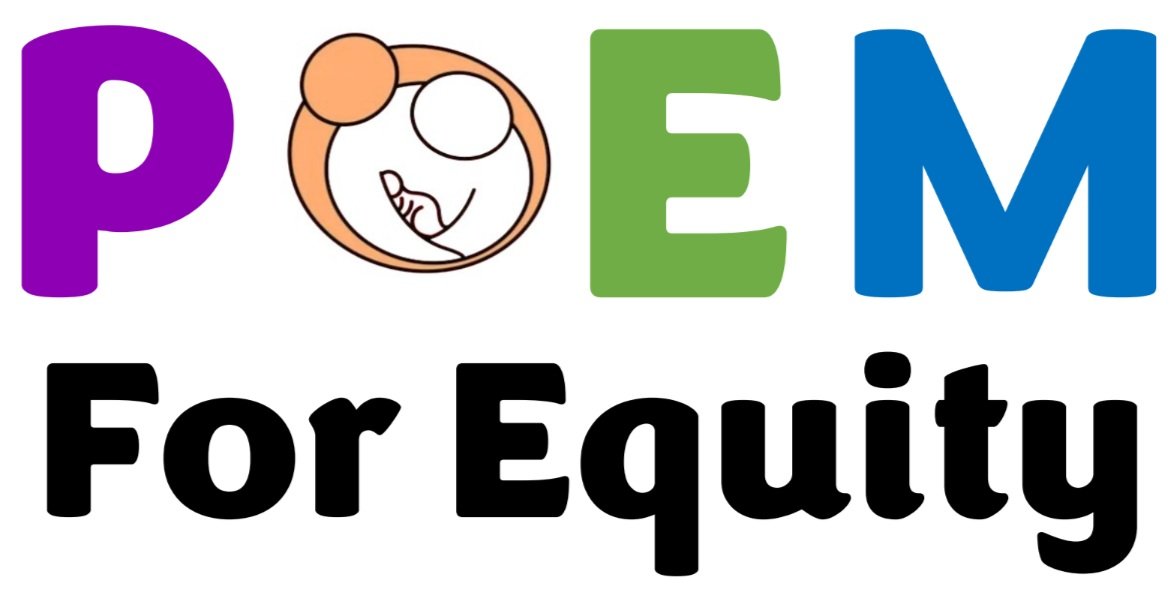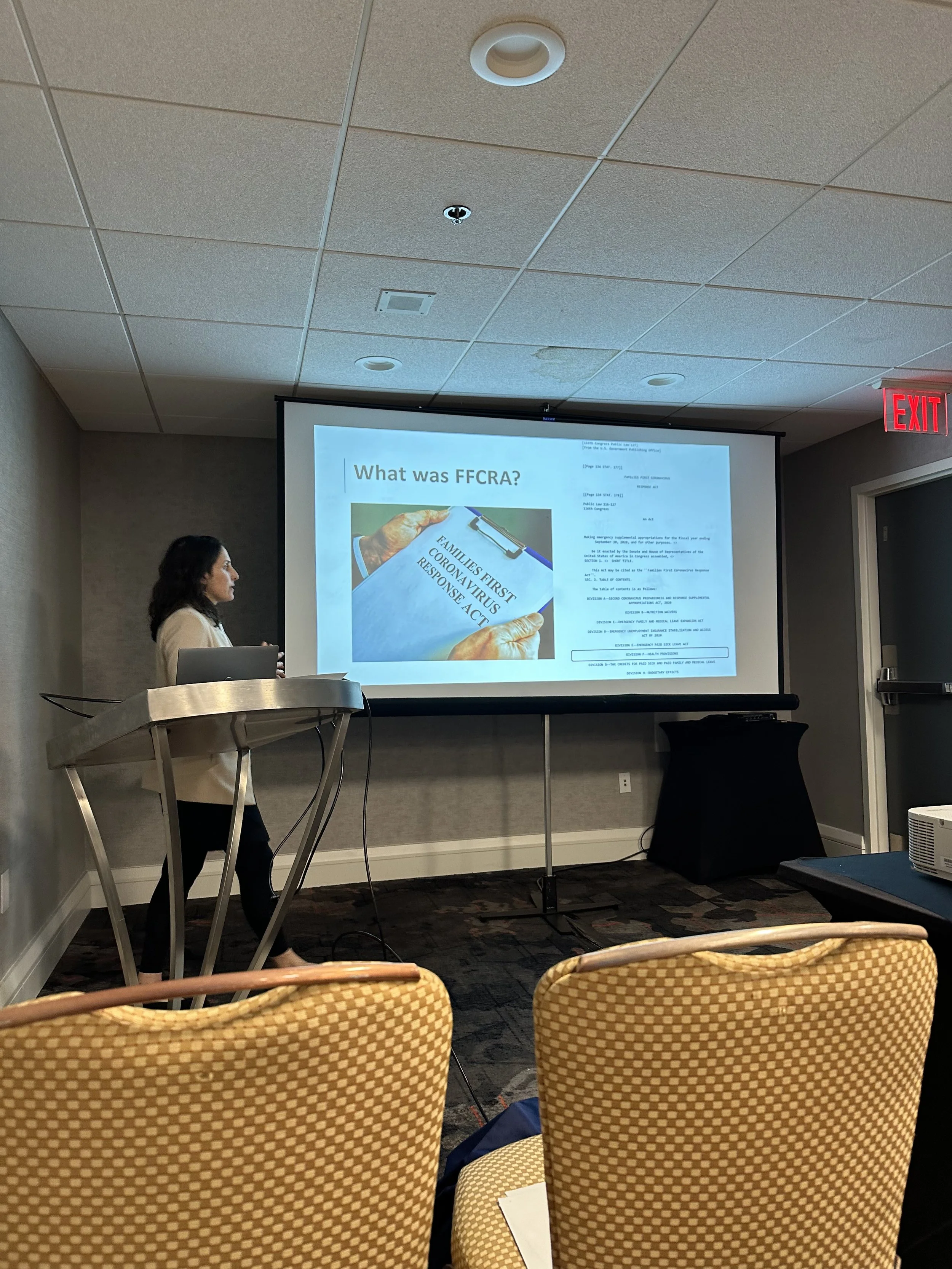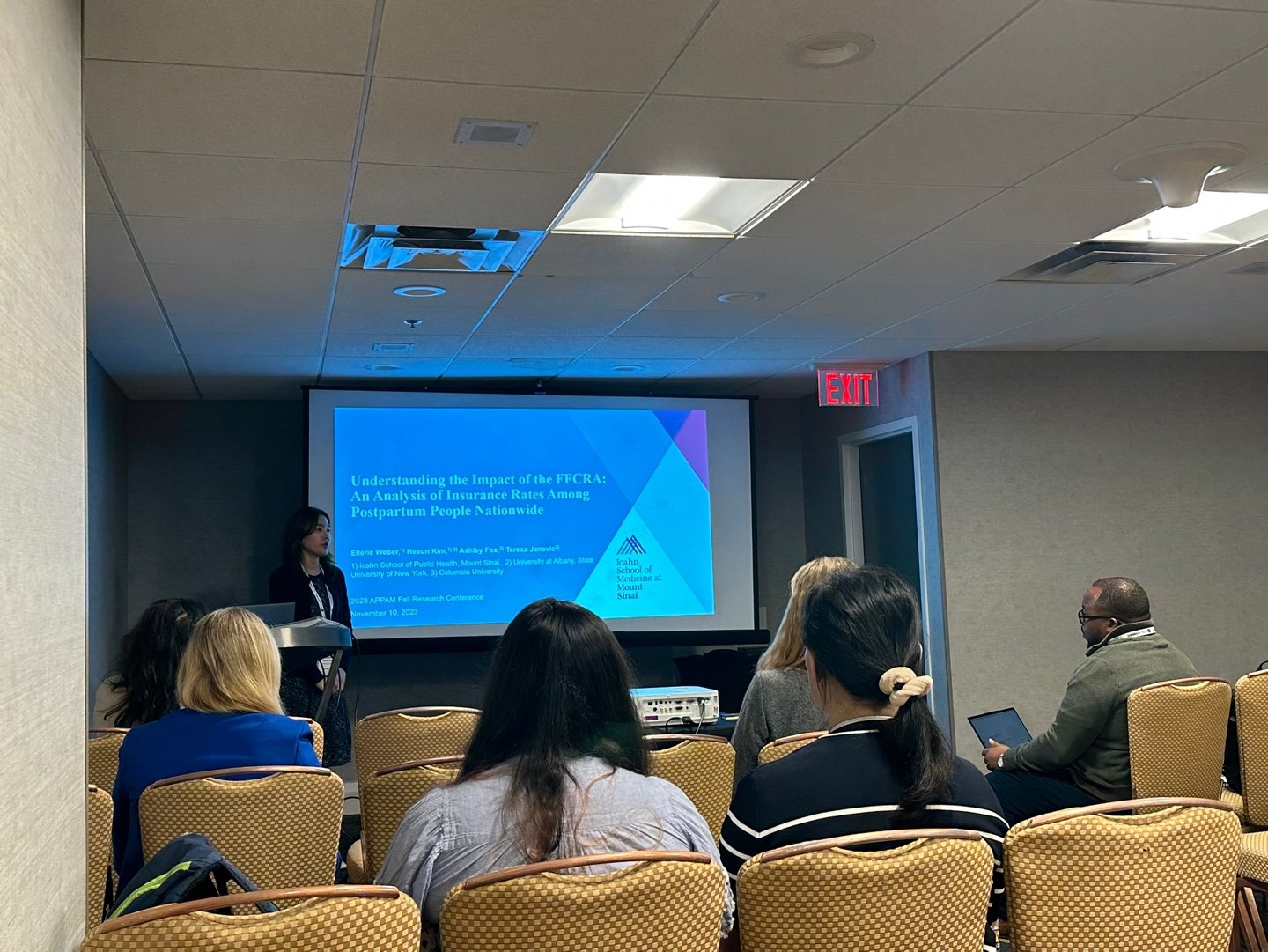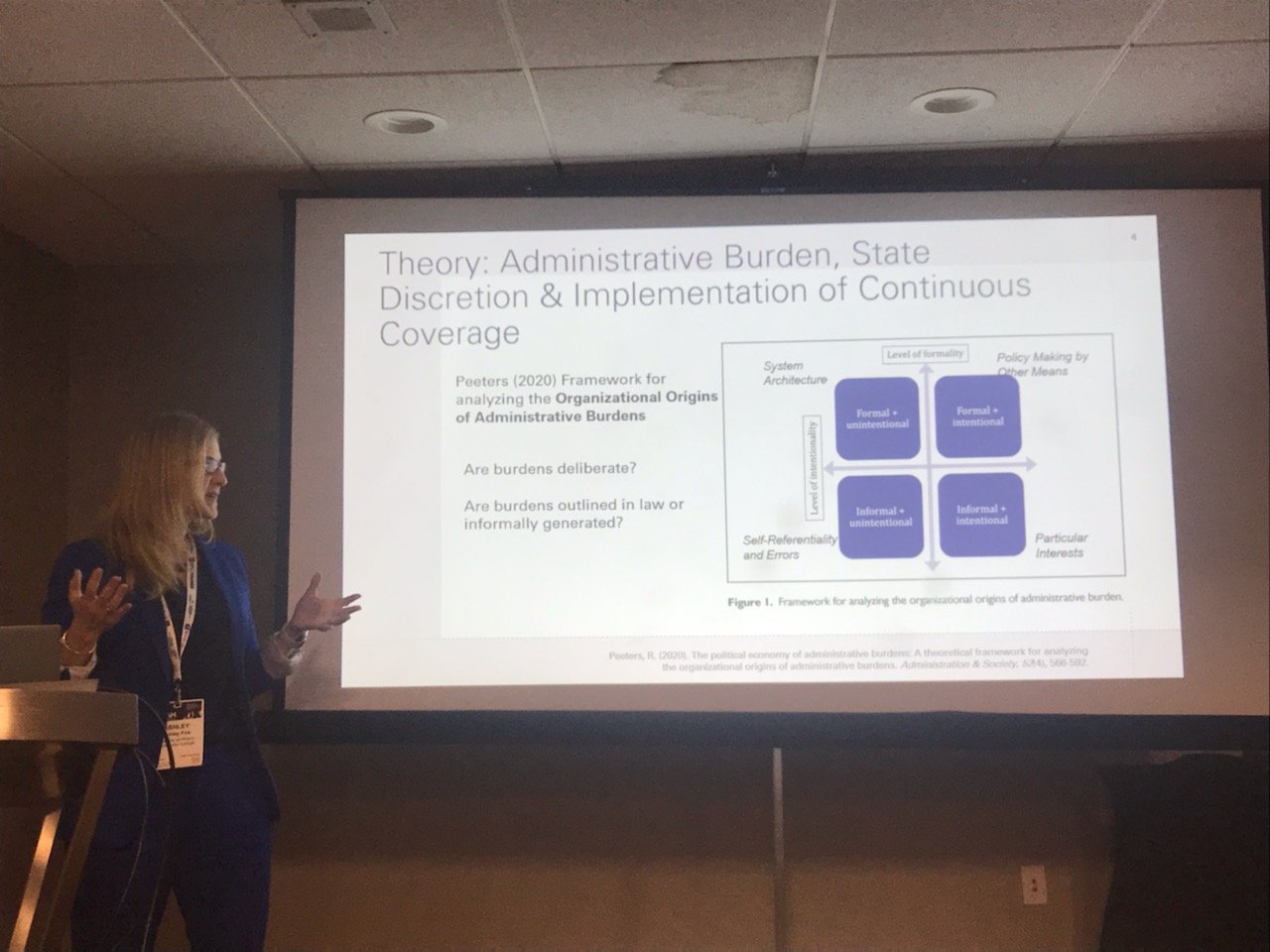POEM Hits the Road!
Written by Teresa Janevic, PhD MPH
11/15/2023
I was thrilled to attend with POEM team members the Association for Public Policy Management and Analysis Fall Research Meeting, titled “Policy that Matters”, November 9-11, 2023. An epidemiologist by training, this was my first time attending APPAM, and the meeting did not disappoint. POEM Co-PI Ellerie Weber organized a symposium titled “POEM for Equity: Evidence from the Families First Coronavirus Response Act on the Implementation and Impact of Postpartum Medicaid Extensions” with the goal of early and timely dissemination of POEM findings. It was an exciting opportunity to get early feedback on our preliminary findings from public policy experts. Dr. Weber kicked off the symposium by giving a background presentation on the Families First Coronavirus Response Act (FFCRA), and an overview of our mixed-methods study on its effect on postpartum people. Congress passed FFCRA in March 2020 to counter pandemic-incurred job loss, and it resulted in a de-facto extension of Medicaid coverage during the postpartum period for birthing people covered by pregnancy-related Medicaid insurance. FFCRA expired in 2023, leading to the “Great Unwinding,” and national and state policymakers are eager for information on how FFCRA impacted postpartum people. We launched the POEM for Equity study in response, focusing on quantitative and qualitative inquiry in TX, NY and NJ, three states with large, diverse Medicaid-insured birthing populations.
We were honored to have Dr. Joseph Benitez of University of Kentucky College of Public Health and Dr. Marian Jarlenski of University of Pittsburgh School of Public Health present to serve as discussants. Dr. Benitez is a Medicaid expert with impactful research such as a recent publication in Jama Health Forum demonstrating that workers experiencing job loss during the COVID-19 pandemic were less likely to lose health insurance in Medicaid expansion states compared to non-expansion states. Dr. Jarlenski is an expert in Medicaid policy and pregnancy outcomes and is a leader of the Medicaid Outcomes Distributed Research Network. Unlike at most epidemiology and public health conferences, APPAM is designed in the format of a social science conference in which discussants have the opportunity to read full manuscripts prior to the symposium, paving the way for a stimulating discussion as well as valuable feedback. We also benefited from the attendance of my new Columbia University colleague Dr. Heidi Allen, who contributed insightful comments based on her deep expertise of Medicaid policy and health.
Heeun Kim MA, POEM data analyst and PhD candidate at SUNY Rockefeller School of Public Policy was first up and shared analyses we have been conducting using American Community Survey data. Our analyses show that postpartum Medicaid insurance increased in postpartum people during the FFCRA period, and that these gains were biggest in states with larger gaps in household income eligibility thresholds between non-pregnancy Medicaid and pregnancy Medicaid. Next, Dr. Fox shared early insights from qualitative interviews with stakeholders, providers, and patients regarding their experiences and views of the implementation of FFCRA among postpartum people. Titled from a patient quote “I’m calmer now that they’re going to give it to me”, early insights included challenges in both the implementation and unwinding of FFCRA, as well as some of the benefits of the opportunity of continuous coverage. Finally, I wrapped up sharing findings from an analysis for which the POEM teamed up with my HD4NYC team at New York City Department of Health and Mental Hygiene, in which we found that FFCRA reduced, but did not eliminate, immigrant vs. US-born disparities in postpartum uninsurance. Hope to be sharing more details of this publication soon!
As a social epidemiologist, I appreciated the opportunity that APPAM provided to focus on the “exposure”, namely the policies we are studying to learn about structural determinants of health. As a POEM team member, I hope that putting our early work “out there” at APPAM will help drive the early dissemination and adaption of our findings, contributing to the end goal of higher quality, more impactful science.
POEM Team at APPAM 2023 in Atlanta!
Dr. Weber is presenting an overview of POEM
Heeun Kim is presenting the result of quantitative analysis of the American Community Survey
Dr. Fox is presenting early insights from qualitative interviews with stakeholders, providers, and patients




